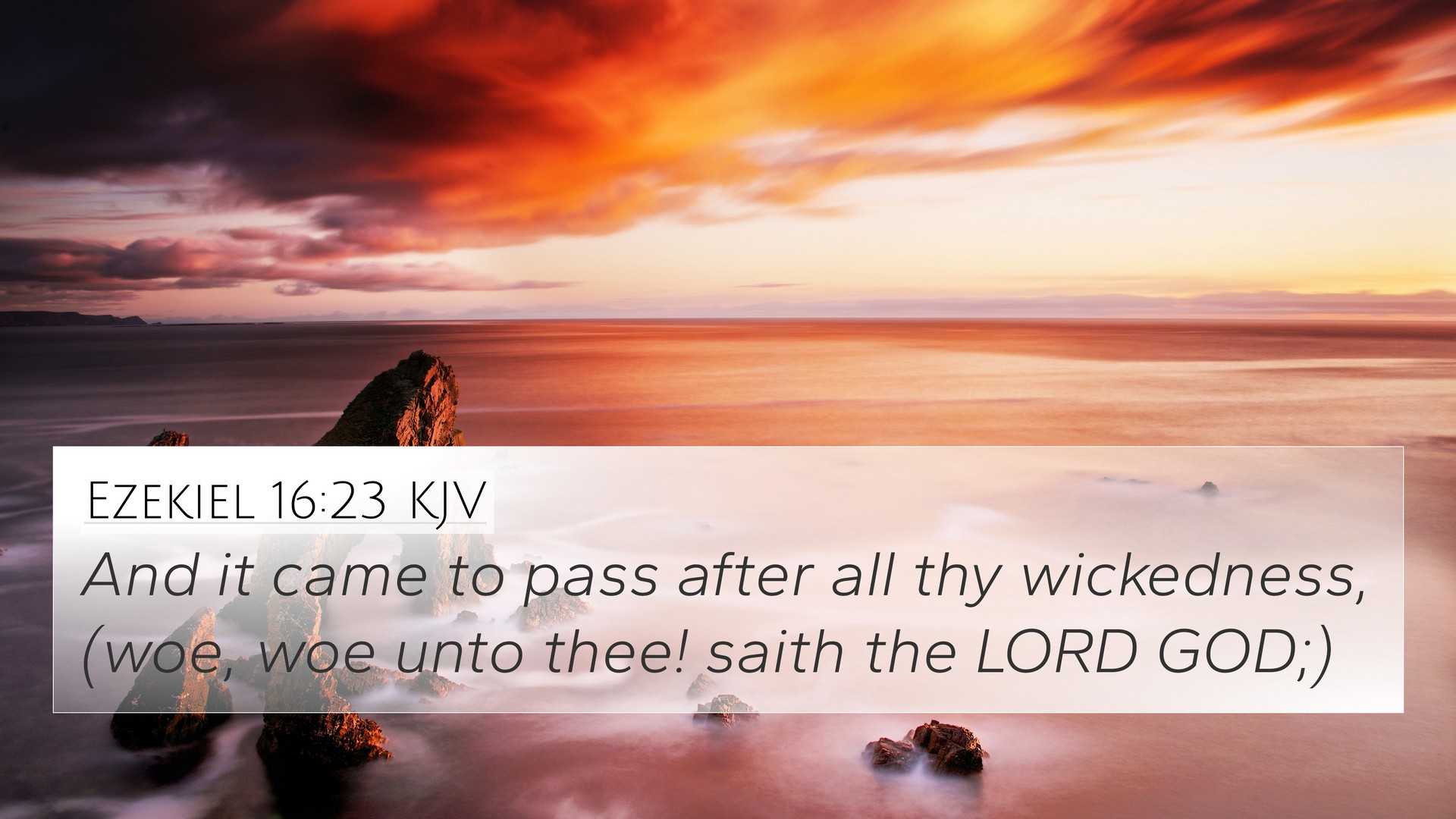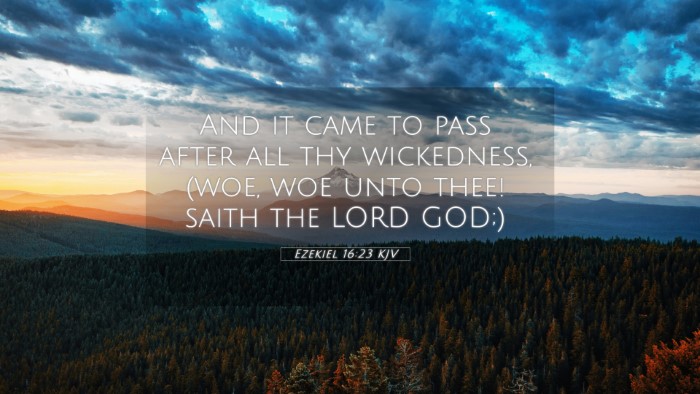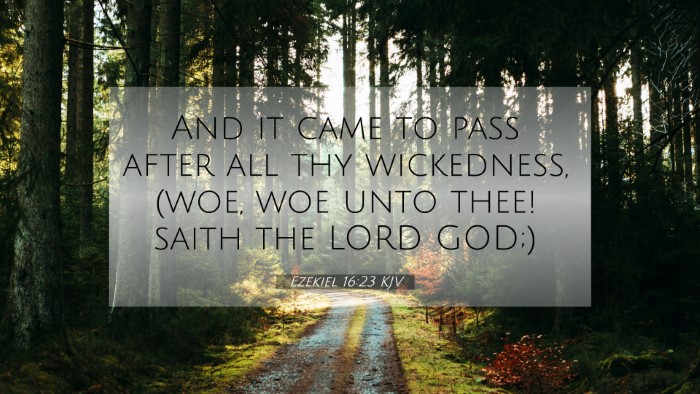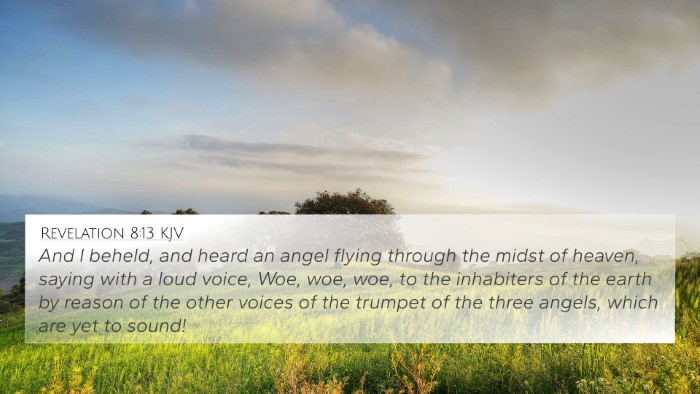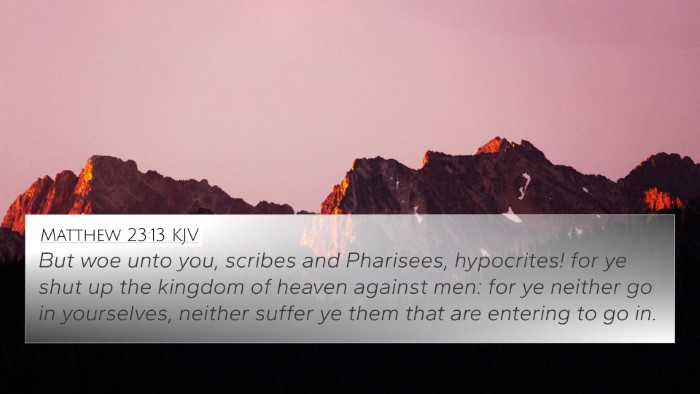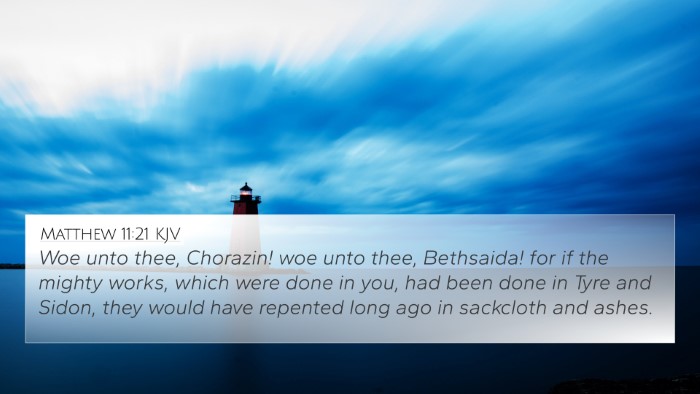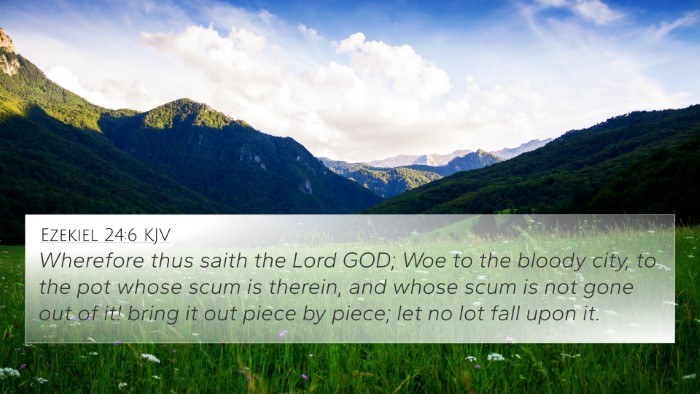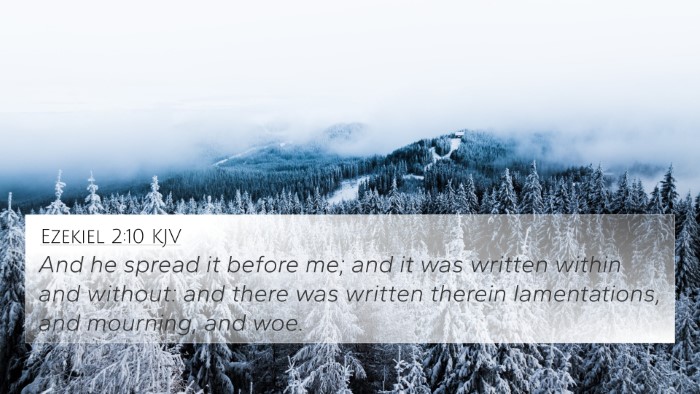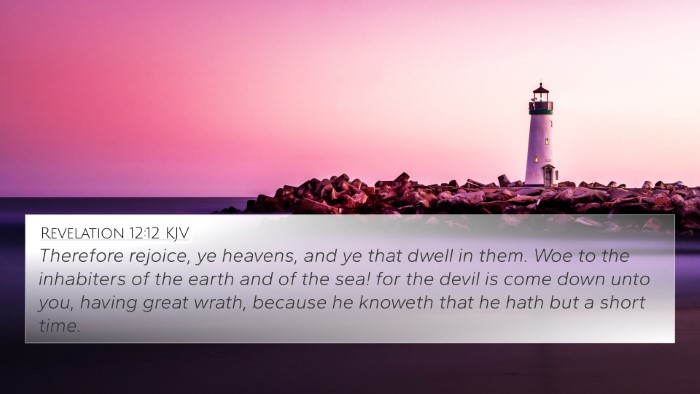Ezekiel 16:23 - Summary and Biblical Commentary
Bible Verse: Ezekiel 16:23
"And it came to pass after all thy wickedness, woe, woe unto thee! saith the Lord GOD."
Context of the Verse
The Book of Ezekiel presents a powerful prophetic narrative where the prophet speaks on behalf of God, addressing the unfaithfulness of Israel. Ezekiel 16 paints a vivid and often graphic picture of Jerusalem as an unfaithful woman, emphasizing both the blessings bestowed by God and the subsequent betrayal by His people.
Meaning of Ezekiel 16:23
This verse serves as a stark warning, highlighting the consequences of Israel's persistent disobedience and idolatry. By repeating "woe," the Lord emphasizes the severity of the nation's moral corruption and the impending judgment they face.
Insights from Public Domain Commentaries
Matthew Henry's Commentary
Matthew Henry notes that this verse signifies a divine lamentation over Israel’s unrepentant heart. God's message conveys that after experiencing all these sinful actions, the nation is warned of the inevitable repercussions. Henry emphasizes the use of "woe" as a term signifying deep sorrow over the fate that awaits those who turn their back on God.
Albert Barnes' Notes
Albert Barnes comments that here, Ezekiel stresses the urgency and seriousness of God's judgment. The phrase "woe, woe" acts as a prophetic cry against the backdrop of Israel's infidelity. Barnes connects this passage with similar prophetic warnings found throughout the scriptures, stressing that such judgments are the result of collective sinfulness that cannot be overlooked by a holy God.
Adam Clarke's Commentary
Adam Clarke highlights the emotional weight behind God's words. Clarke interprets "woe" not just as a sign of judgment but as a crying out for the people to recognize the great loss of their relationship with God. He explains that these verses encapsulate God's desire for repentance, reflecting His pain over Israel’s spiritual state.
Connections to Other Biblical Texts
Ezekiel 16:23 resonates with various themes present throughout the Bible. Below are some relevant cross-references that elucidate similar ideas of sin, judgment, and divine displeasure:
- Jeremiah 2:19: "Thine own wickedness shall correct thee, and thy backslidings shall reprove thee."
- Hosea 9:17: "My God will cast them away, because they did not hearken unto him."
- Isaiah 5:20: "Woe unto them that call evil good, and good evil."
- Lamentations 3:39: "Wherefore doth a living man complain, a man for the punishment of his sins?"
- Ezekiel 18:30: "Repent, and turn yourselves from all your offenses; so sin will not be your downfall."
- Revelation 2:5: "Remember therefore from whence thou art fallen, and repent."
- 2 Chronicles 7:14: "If my people, which are called by my name, shall humble themselves, and pray..."
Lessons and Theological Implications
Exploring Ezekiel 16:23 leads to profound theological reflections. This verse serves as a reminder of the consequences of sin and the need for repentance.
- Reflection on Judgment: Understanding God's displeasure regarding moral decay and unfaithfulness.
- Call to Repentance: Encouraging believers to turn back to God before facing dire consequences.
- God’s Justice and Mercy: The balance between God's righteousness in judgment and His desire for humanity’s redemption.
Thematic Cross-References
This verse touches upon broader themes found within scripture, which can be explored through cross-referencing:
- Idolatry and Infidelity: Explored in passages like 1 Corinthians 10:14 and James 4:4.
- Divine Warnings: Found in Matthew 24:25 and Luke 13:5.
- Hope in Restoration: Illustrated in 2 Peter 3:9 and Isaiah 40:1-2.
Cross-Referencing for Deeper Understanding
To further aid in understanding Ezekiel 16:23, one may utilize various tools and methods:
- Utilizing a Bible concordance to find related themes.
- Employing a Bible cross-reference guide to explore cross-referenced narratives.
- Engaging in a cross-reference Bible study to expand comprehension of interrelated verses.
Conclusion
Ezekiel 16:23 encapsulates the essence of God's relationship with His people — marked by love, betrayal, and a longing for reconciliation. The verse serves as both a warning and an invitation for believers to heed the call to repentance and to understand the weight of sin in the light of divine judgment.
